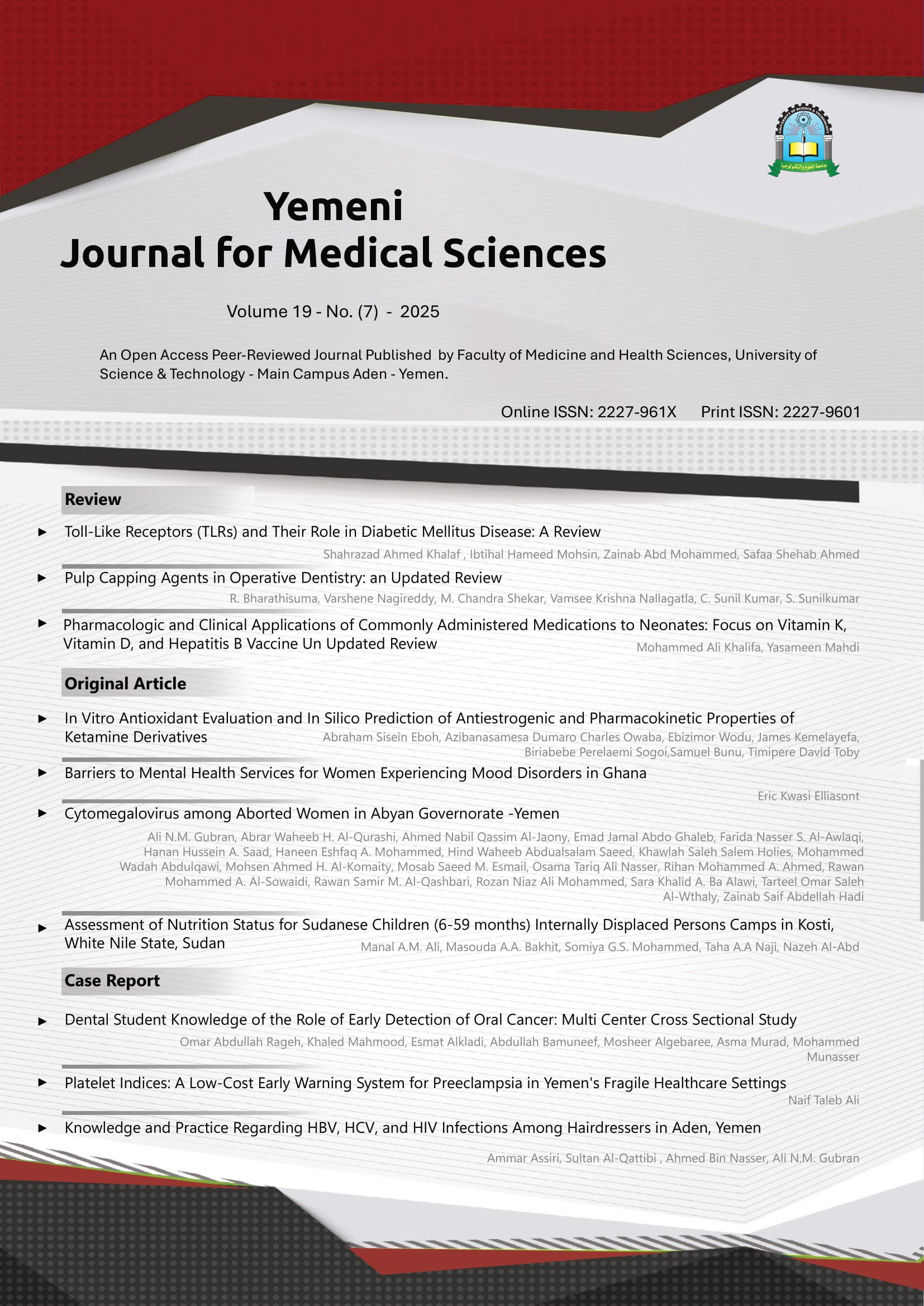Barriers to Mental Health Services for Women Experiencing Mood Disorders in Ghana
##plugins.themes.bootstrap3.article.main##
Abstract
Background: Accessing mental health services for conditions like depression and anxiety is critical to individual and public health.
Objective: This study examines the gaps in access to mental health services for the female population in Ghana and identifies methods to increase the use of these services.
Methods: This study utilized both quantitative and qualitative approaches through surveys and interviews. A total of 800 women were recruited from urban (Accra) and rural (Northern Region) regions. Questionnaires that measured access to care, affordability, stigma, and knowledge about mental health services were used to collect quantitative data. Quantitative data were analyzed using descriptive statistics, while qualitative data were analyzed thematically.
Results: Of the 800 women surveyed (400 urban, 400 rural), 68% had not sought formal mental healthcare. This included 62% of urban respondents and 74% of rural respondents. The top three reported barriers were stigma (reported by 45% overall; 38% urban, 52% rural), financial constraints (40% overall; 32% urban, 48% rural), and lack of awareness of services (35% overall; 28% urban, 42% rural). Logistic regression analysis revealed that stigma (OR = 2.1, 95% CI: 1.6–2.7), financial constraints (OR = 1.8, 95% CI: 1.4–2.4), and lack of awareness (OR = 1.6, 95% CI: 1.2–2.1) were significant predictors of non-utilization of mental health services. Rural women were significantly more likely to cite cultural beliefs and travel distance as additional barriers (p < 0.01).
Conclusion: The lack of mental health services and access to them for women in Ghana is influenced socially and culturally as well as economically and systemically. These barriers need specially designed targeted public education campaigns, subsidized healthcare funding, and the incorporation of mental healthcare into primary healthcare services.
##plugins.themes.bootstrap3.article.details##
mental health services; mood disorders; women; Ghana; barriers; stigma

This work is licensed under a Creative Commons Attribution 4.0 International License.
YJMS publishes Open Access articles under the Creative Commons Attribution (CC BY) license. If author(s) submit their manuscript for consideration by YJMS, they agree to have the CC BY license applied to their work, which means that it may be reused in any form provided that the author(s) and the journal are properly cited. Under this license, author(s) also preserve the right of reusing the content of their manuscript provided that they cite the YJMS.








